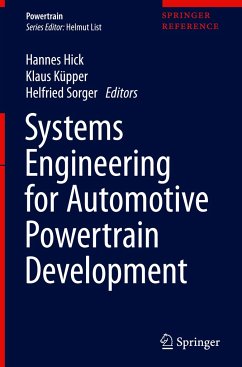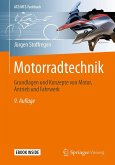For the last century, the automotive industry has been dominated by internal combustion engines. Their flexibility of application, driving range, performance and sporty characteristics has resulted in several generations of this technology and has formed generations of engineers. But that is not the end of the story. Stricter legislation and increased environmental awareness have resulted in the development of new powertrain technologies in addition and parallel to the highly optimized internal combustion engine. Hybrid powertrains systems, pure battery electric systems and fuel cell systems, in conjunction with a diverse range of applications, have increased the spectrum of powertrain technologies. Furthermore, automated driving together with intelligent and highly connected systems are changing the way to get from A to B. Not only is the interaction of all these new technologies challenging, but also several different disciplines have to collaborate intensively in order fornew powertrain systems to be successfully developed. These new technologies and the resulting challenges lead to an increase in system complexity. Approaches such as systems engineering are necessary to manage this complexity.
To show how systems engineering manages the increasing complexity of modern powertrain systems, by providing processes, methods, organizational aspects and tools, this book has been structured into five parts.
Starting with Challenges for Powertrain Development, which describes automotive-related challenges at different levels of the system hierarchy and from different point of views.
The book then continues with the core part, Systems Engineering, in which all the basics of systems engineering, model-based systems engineering, and their related processes, methods, tools, and organizational matters are described. A special focus is placed on important standards and the human factor.
The third part, Automotive Powertrain Systems Engineering Approach, puts the fundamentals of systems engineering into practice by adding the automotive context. This part focuses on system development and also considers the interactions to hardware and software development. Several approaches and methods are presented based on systems engineering philosophy.
Part four, Powertrain Development Case Studies, adds the practical point of view by providing a range of case studies on powertrain system level and on powertrain element level and discusses the development of hybrid powertrain, internal combustion engines, e-drives, transmissions, batteries and fuel cell systems. Two case studies on a vehicle level are also presented.
The final part, Outlook, considers the development of systems engineering itself with particular focus on information communication technologies.
Even though this book covers systems engineering from an automotive perspective, many of the challenges, fundamental principles, conclusions and outlooks can be applied to other domains too. Therefore, this book is not only relevant for automotive engineers and students, but also for specialists in scientific and industrial positions in other domains and anyone who has to cope with the challenge of successfully developing complex systems with a large number of collaborating disciplines.
To show how systems engineering manages the increasing complexity of modern powertrain systems, by providing processes, methods, organizational aspects and tools, this book has been structured into five parts.
Starting with Challenges for Powertrain Development, which describes automotive-related challenges at different levels of the system hierarchy and from different point of views.
The book then continues with the core part, Systems Engineering, in which all the basics of systems engineering, model-based systems engineering, and their related processes, methods, tools, and organizational matters are described. A special focus is placed on important standards and the human factor.
The third part, Automotive Powertrain Systems Engineering Approach, puts the fundamentals of systems engineering into practice by adding the automotive context. This part focuses on system development and also considers the interactions to hardware and software development. Several approaches and methods are presented based on systems engineering philosophy.
Part four, Powertrain Development Case Studies, adds the practical point of view by providing a range of case studies on powertrain system level and on powertrain element level and discusses the development of hybrid powertrain, internal combustion engines, e-drives, transmissions, batteries and fuel cell systems. Two case studies on a vehicle level are also presented.
The final part, Outlook, considers the development of systems engineering itself with particular focus on information communication technologies.
Even though this book covers systems engineering from an automotive perspective, many of the challenges, fundamental principles, conclusions and outlooks can be applied to other domains too. Therefore, this book is not only relevant for automotive engineers and students, but also for specialists in scientific and industrial positions in other domains and anyone who has to cope with the challenge of successfully developing complex systems with a large number of collaborating disciplines.








